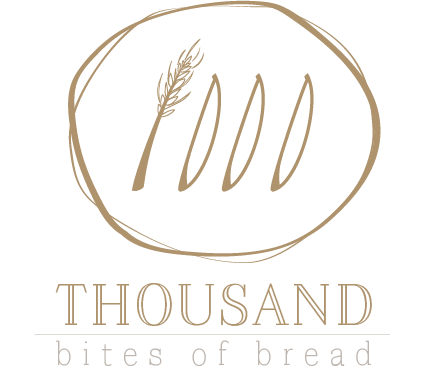In my house, we call it Mama bread. My daughter started it, her sleepy melodious pitch answering to my morning requests as she ambled down the stairs.
“I’ll have some mama bread.”
It came into our lexicon without any signal or flourish. It was just there, acting between us, moving in like a trusted member of the family that we could rely on for both strength and happiness.
Mama bread.
For most of recorded history what we came to know as Mama bread was simply called bread.
Flour, water, salt, magic…
Magic. Otherwise known as microbes…which is fine by me. Who cares if what was once hidden and mystifying can now be named as little living beings? It’s a reminder that there’s still so much we don’t know in each day, so much room to grow and learn and understand the world a little differently. To name things.
Mama bread.
Yet, even shrouded in mystery, we still need to eat.
I take my first bite of toast each morning and chew on this truth. There is magic hidden inside every interaction, even in the most mundane…especially in the most mundane. Eating breakfast together is its own celebration of the interaction between feeding ourselves and deeply nourishing our lives.
Mama Bread.
Before mama bread, I was told that my daughter probably shouldn’t eat grain. Her stomach hurt for a year before we were told these words. No wheat.
And yet, she wanted bread with every meal. Everything about her upbringing and heritage points towards bread.
My grandmother—my daughter’s great grandmother—always sits us down to plates of bread & cheese when we come to visit. This act is actually a small wonder. She is a ninety-year-old Auschwitz survivor who never thought she’d live past the age of fifteen. There had been abundant bread in her youth, but the ease of feeding herself good bread was horribly decimated. Scarcity and cruelty became her new norm. Survival. Amidst it all, she had a friend, and this woman was a courageous smuggler who hid a single gold coin in her mouth. That gold coin became extra rations of bread, and with that, her friend changed the meaning of stale bread forever. Bread came to mean love and nurturing once again; bread came to mean everything would be okay in the end. And so my grandmother feeds us bread.
When I was told that my daughter couldn’t digest wheat, I thought of my grandmother and dug in a little deeper. I smuggled my own gold coin of sorts as I obsessed about the process of making bread my daughter could share with us. Mama bread. It’s made with whole grain flour grown by farmers who care, milled by cold stones, used while fresh. Clean water and salt. Microbes and magic. It’s my way back from scarcity. A different kind of scarcity.
Loneliness and survival and abandonment are plenty in this world. They are hard to digest, to be sure. And yet, they mix heartily with the love and delight and pleasure we get to carry with us, too. They knead our stories into being. Mama bread is part of ours.
Savor your day with delight and gratitude.

Mama Bread
Makes 2 round levain
1000 grams whole grain flour
850 to 1050 grams of water (depending on grain)
200 grams ripe, buoyant levain
24 grams salt

